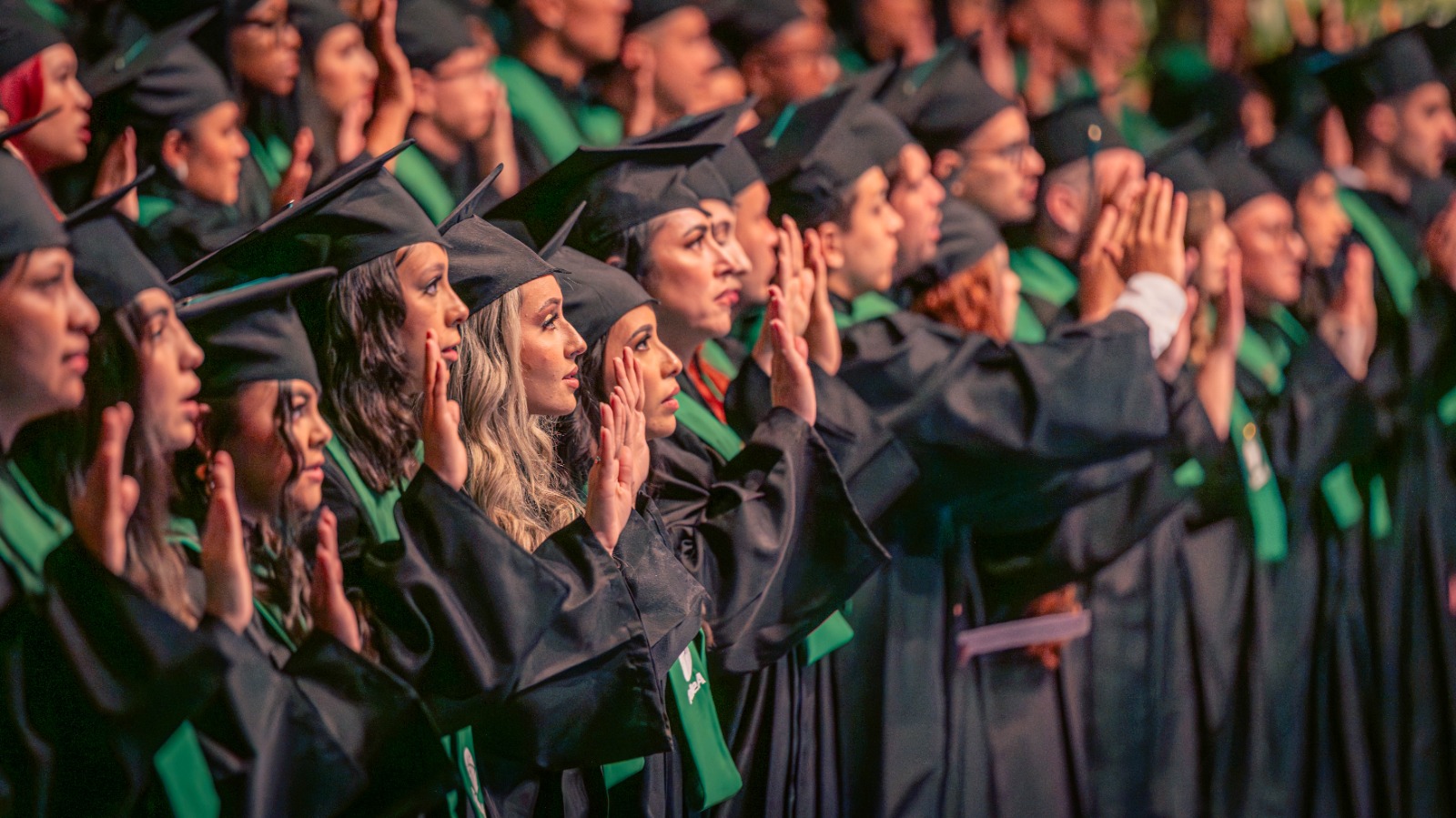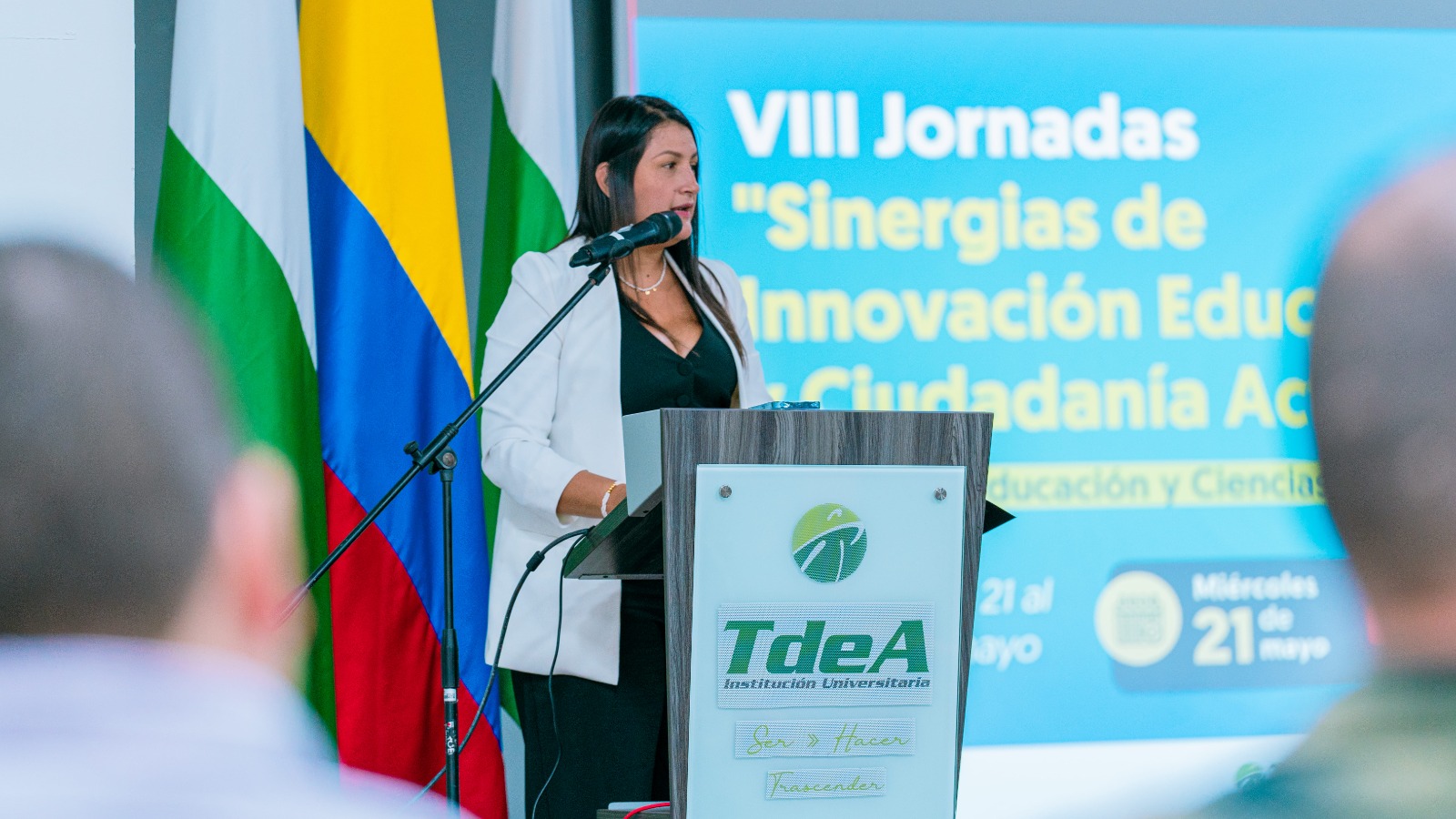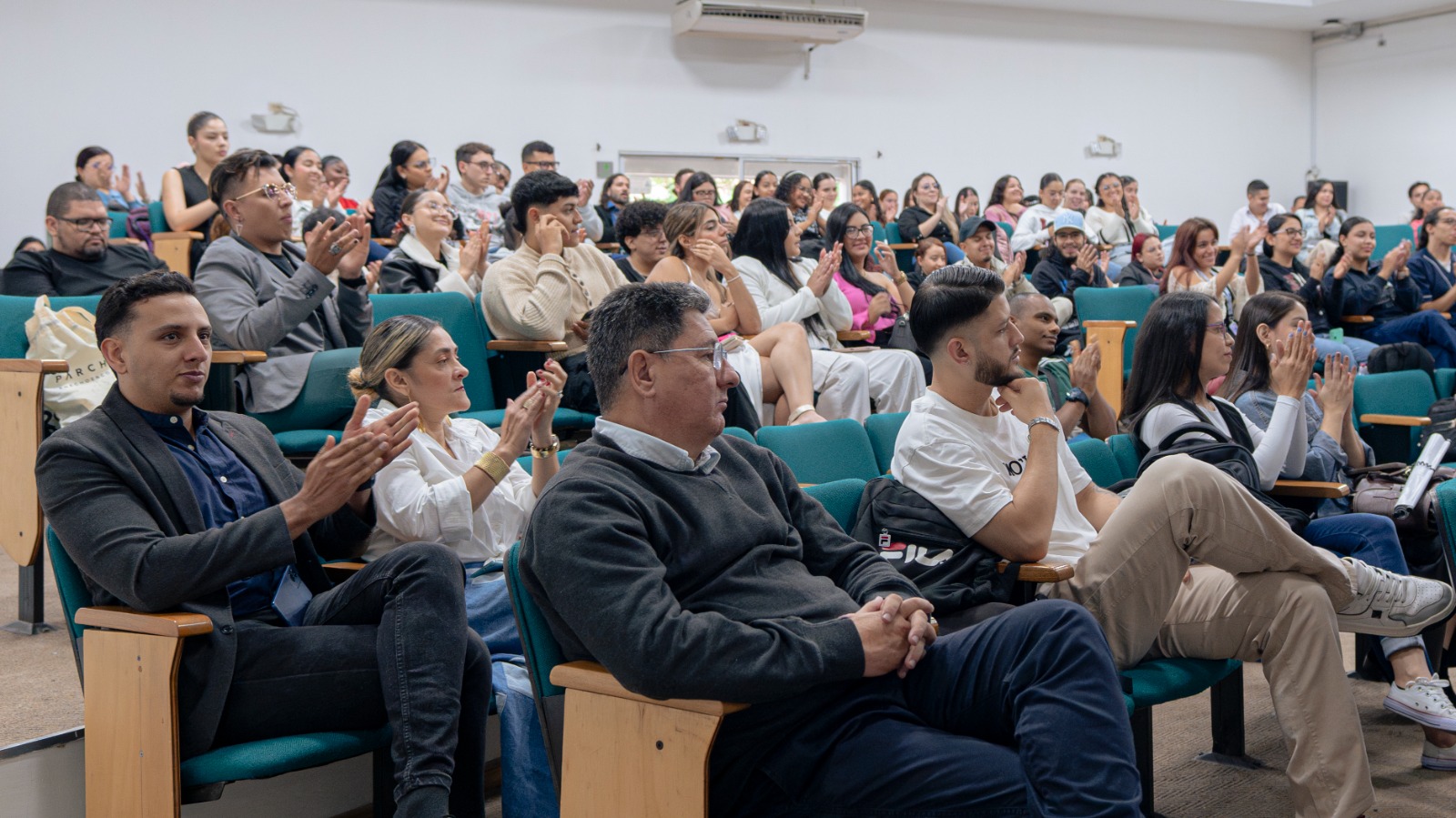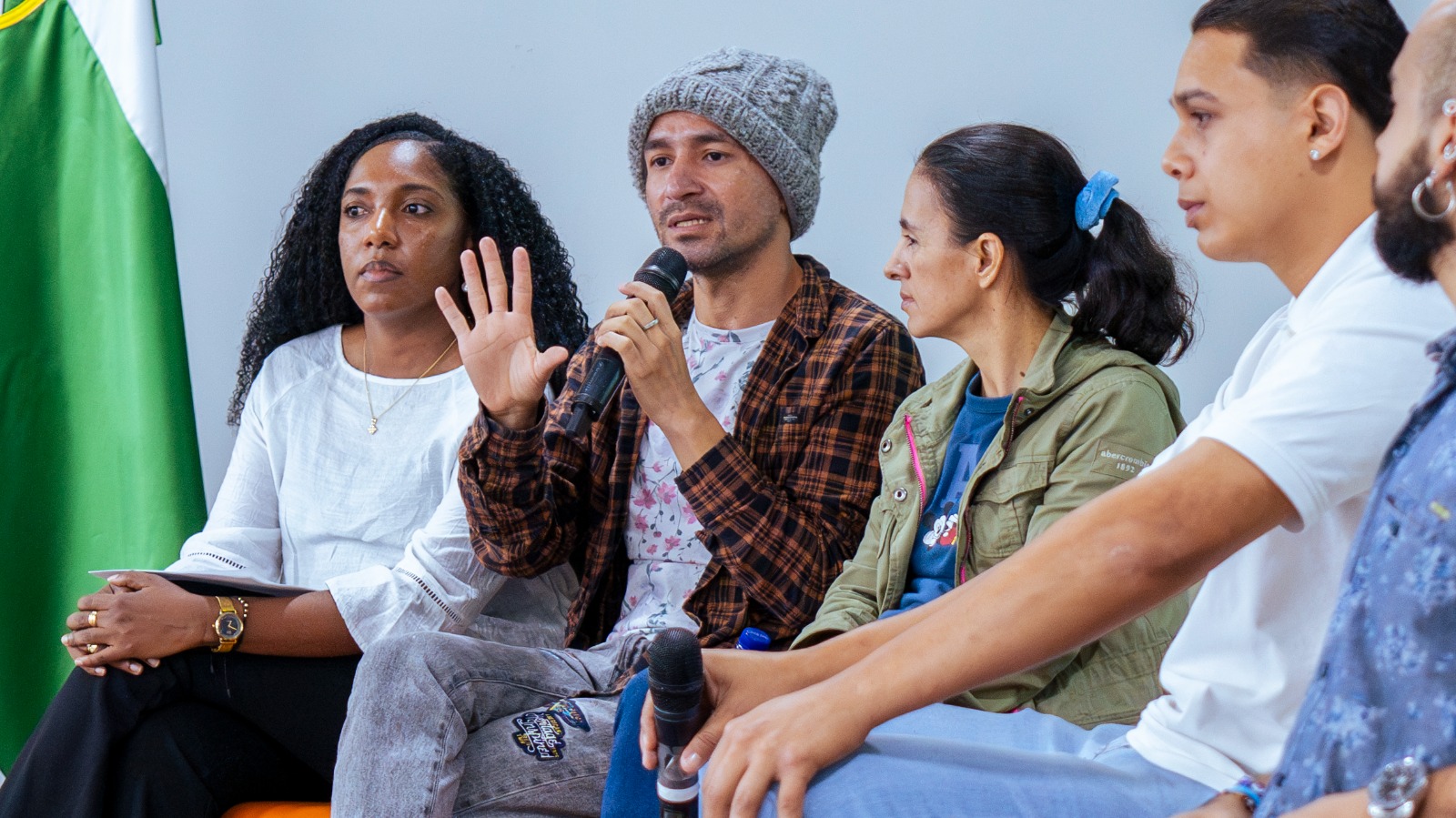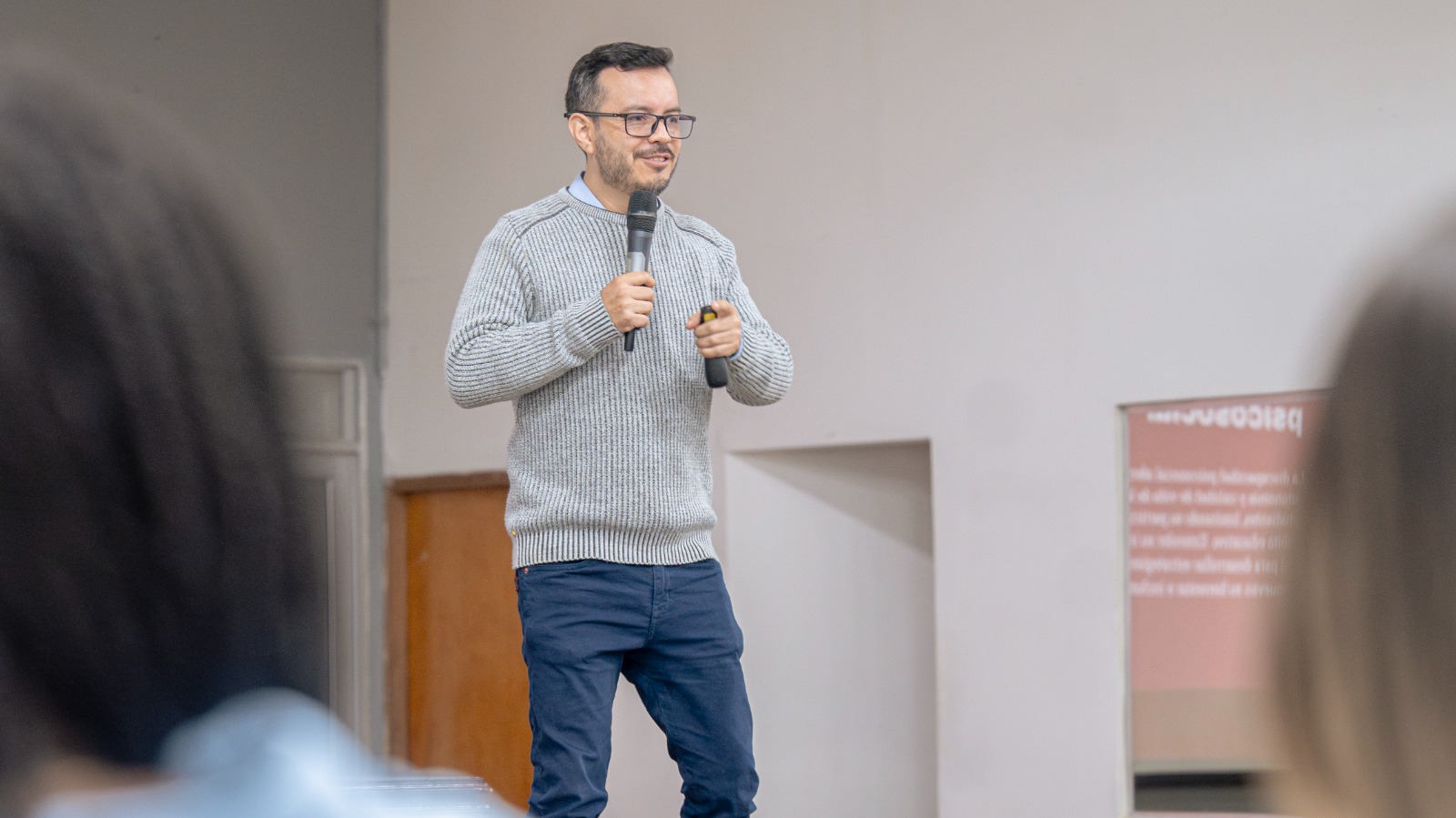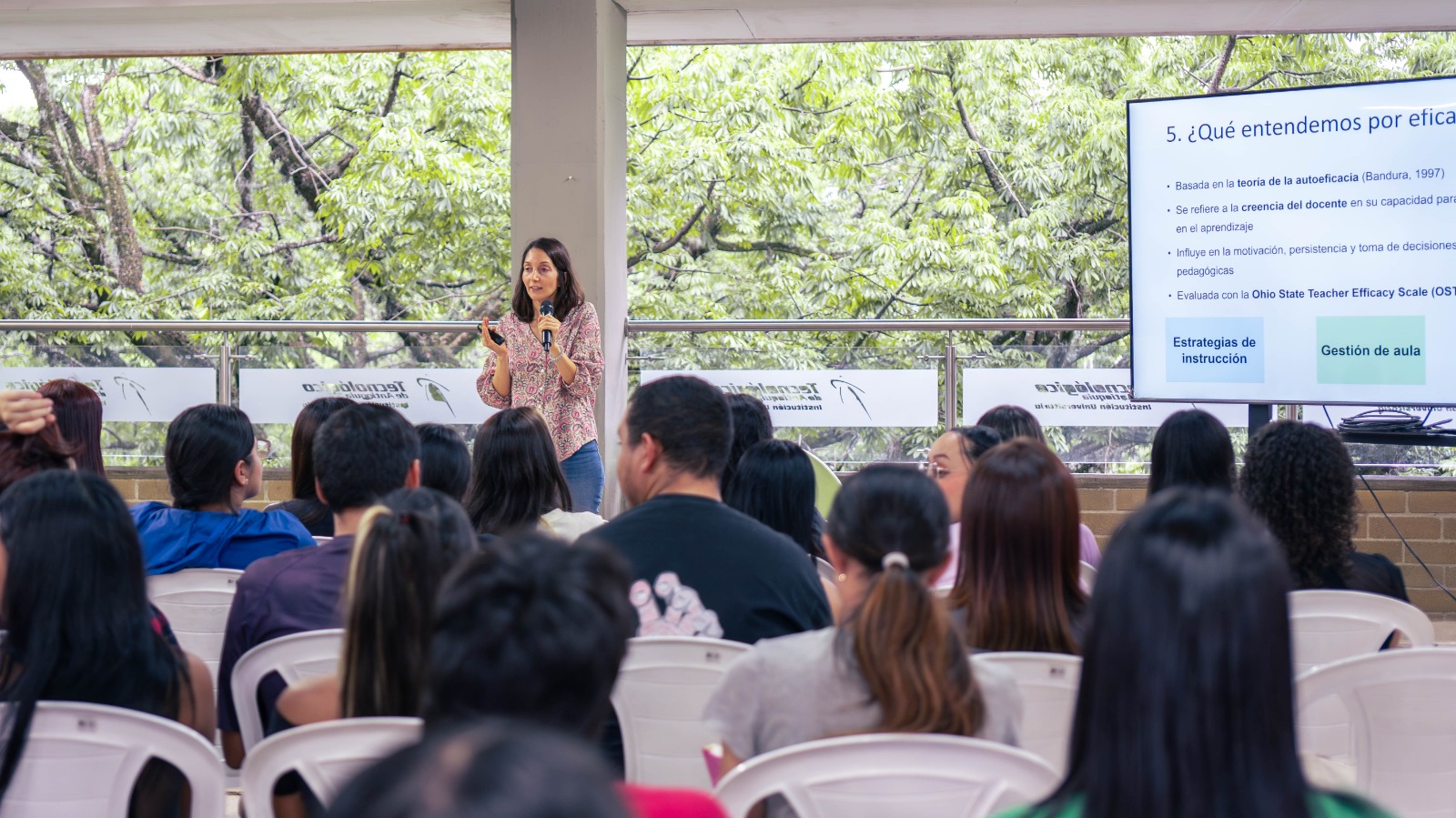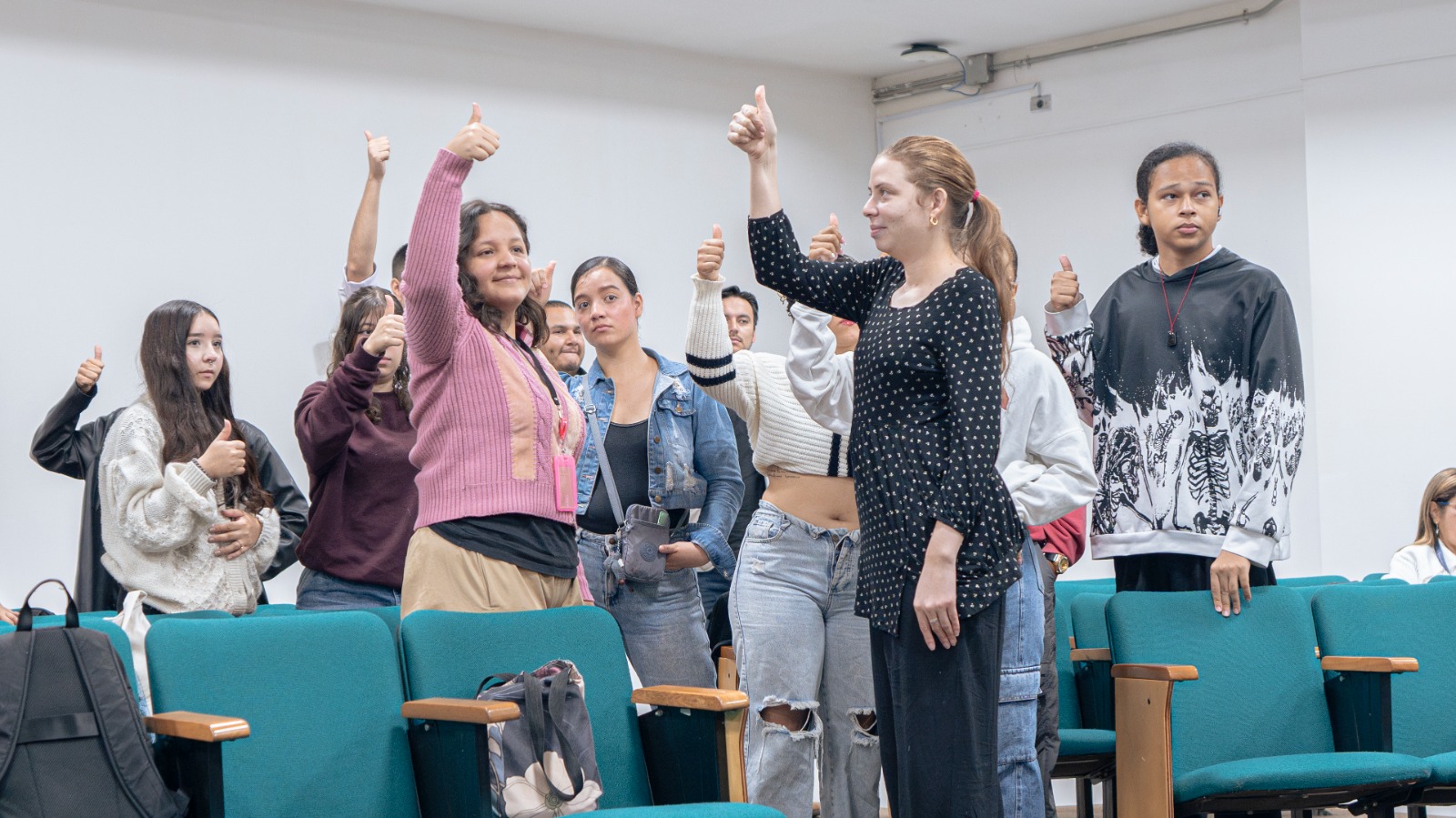Con temas que invitan a la reflexión sobre los retos actuales, la Facultad de Educación y Ciencias Sociales (FECS) dio inicio a la octava edición de sus Jornadas con el lema: "Sinergias de Innovación Educativa y Ciudadanía Activa”, realizadas del 21 al 23 de mayo.
Este espacio reflexivo, crítico y transformador busca fomentar el diálogo entre la academia, el territorio y las políticas públicas, estrechando la interacción entre el TdeA y la sociedad. Para esta edición, se plantearon temas como propiedad intelectual, innovación y emprendimiento; la inteligencia emocional como factor de eficacia en la labor docente; experiencia en la participación de semilleros; interculturalidad y problemáticas sociales; incertidumbres educativas en el mundo actual; apropiación social del conocimiento como enlace entre la investigación y las comunidades; tensiones entre inclusión, sociedad y tecnología; y narrativas transformadoras en diversidad.
Para materializar esta experiencia, se definieron espacios de sinergia en formatos como charlas, cátedras y conversatorios hasta mesas de trabajo, exposiciones, talleres, espacios culturales, cine foros y festivales; motivando la información, la expresión de diferentes lecturas del mundo, la reflexión, el debate, la participación, la colaboración, la articulación y la lúdica.
En la instalación, por motivos de salud de la decana Ángela Ramírez Betancur, la docente Mayerly Llanos Redondo, coordinadora de la Licenciatura en Educación Infantil, leyó en su nombre las palabras que la directiva preparó para dar apertura a las Jornadas: “Es un encuentro de sentires, saberes, experiencias y compromisos, que nos convoca en el deseo compartido de pensar y construir una sociedad más justa desde el lugar que mejor sabemos habitar, que es la educación”.
Agregando que este espacio invita a la transformación desde el conocimiento, la práctica y las voces diversas, trascendiendo el aula, llegando hasta las comunidades y conversando con las políticas públicas. Además de la generación de estos diálogos, las Jornadas también visibilizan las prácticas, experiencias y apuestas formativas de los programas de la FECS.
La conferencia inaugural “Aprendizajes fundamentales para un país en crisis” estuvo a cargo del abogado y exministro del Interior, Armando Estrada Villa, quien además es especialista en Hermenéutica Literaria, magíster en Ciencias Políticas, doctor en Filosofía y autor de libros que entregan su lectura y análisis de la situación colombiana.
En su intervención, destacó el rol de la educación y la ciudadanía en tiempos complejos. En primera instancia, resaltó las razones por las cuales se habla de una Colombia en crisis: violencia desde el conflicto armado hasta en la vida cotidiana, desempleo, falta de acceso a los servicios de salud, desigualdad y pobreza, narcotráfico, desplazamiento forzado, evasión fiscal, violación de los Derechos Humanos, contaminación y deforestación, prevalencia del interés particular sobre el bien común y la corrupción. Hizo un puente con la educación al señalar que esta no ha llegado a convencer a quienes infringen la ley que otro debe ser el comportamiento. “Las consecuencias son muy claras, impactan negativamente la calidad de vida de los colombianos y el desarrollo del país”, puntualizó el exministro.
“Las causas educativas tienen que ver con que la educación no imparte, en la forma que debiera hacerlo, el artículo 67 de la Constitución Nacional, porque no de detiene a ver cuáles son los objetivos de la educación”, indicó que es necesario no solo graduar buenos profesionales, sino que se debe buscar formar buenos ciudadanos, responsables y críticos.
“Ante los problemas que hemos mencionado, la educación constituye un instrumento indispensable para enfrentarlos”, sugirió la revisión constante y el trabajo a la luz de este artículo y del 95 que habla de los Deberes y Derechos, sumando la Ley 115 de 1994, Ley General de Educación.
“La educación tiene mucho que hacer, puede contribuir a formar mejores ciudadanos, a un mejor desarrollo del país, a crear una sociedad más integrada de la que tenemos. Pero hay que decir con toda claridad que la educación no es la panacea, no lo cura todo y tampoco sus efectos son inmediatos”, aunque enfatizó que sí puede hacer retroceder problemas sociales de base. Precisamente, consideró que la educación debe tenerlos en cuenta, al igual que la interdisciplinariedad entre las ciencias y las humanidades y no capacitar solo disciplinalmente.
Una segunda pregunta se centró en cómo debe ser la educación para cumplir con la misión: “La Unesco sugiere que debe estructurarse en torno a cuatro aprendizajes básicos: aprender a conocer o a aprender, a hacer, a convivir y a ser. Después, por iniciativa de Federico Mayor Zaragoza se introdujo el quinto: aprender a emprender”, finalizó anotando que todo esto debe estar centrado en el ser humano para afrontar las complejidades del mundo actual.
![]()
The Challenges of Today's World at the FECS Conferences
With topics that invite reflection on current challenges, the School of Education and Social Sciences (FECS) launched the eighth edition of its Conferences with the slogan: "Synergies of Educational Innovation and Active Citizenship," held from May 21 to 23.
This reflective, critical, and transformative space aims to foster dialog between academia, the territory, and public policies, strengthening the interaction between TdeA and society. For this edition, topics such as intellectual property, innovation, and entrepreneurship; emotional intelligence as a factor of effectiveness in teaching; experience in the participation of research groups; interculturality and social issues; educational uncertainties in today's world; social appropriation of knowledge as a link between research and communities; tensions between inclusion, society, and technology; and transformative narratives in diversity were proposed.
To materialize this experience, synergy spaces were defined in formats such as talks, lectures, and discussions to working tables, exhibitions, workshops, cultural spaces, film forums, and festivals; encouraging information, the expression of different worldviews, reflection, debate, participation, collaboration, articulation, and playfulness.
At the opening, due to the health issues of Dean Ángela Ramírez Betancur, Professor Mayerly Llanos Redondo, coordinator of the Bachelor's in Early Childhood Education, read on her behalf the words prepared by the administration to inaugurate the event: "It is a meeting of feelings, knowledge, experiences, and commitments, which calls us together in the shared desire to think and build a fairer society from the place we know best how to inhabit, which is education."
Adding that this space invites transformation thru knowledge, practice, and diverse voices, transcending the classroom, reaching out to communities, and engaging with public policies. In addition to generating these dialogs, the Conferences also highlight the practices, experiences, and educational commitments of the FECS programs.
The inaugural conference "Fundamental Learnings for a Country in Crisis" was given by the lawyer and former Minister of the Interior, Armando Estrada Villa, who is also a specialist in Literary Hermeneutics, a master's in Political Science, a PhD in Philosophy, and the author of books that provide his reading and analysis of the Colombian situation.
In her speech, she highlighted the role of education and citizenship in complex times. First, she highlighted the reasons why Colombia is said to be in crisis: violence from armed conflict to everyday life, unemployment, lack of access to healthcare services, inequality and poverty, drug trafficking, forced displacement, tax evasion, human rights violations, pollution and deforestation, the prevalence of private interest over the common good, and corruption. She made a connection with education by pointing out that it has not managed to convince those who break the law that their behavior should be different. "The consequences are very clear, they negatively impact the quality of life of Colombians and the development of the country," emphasized the former minister.
"The educational causes are related to the fact that education does not impart, in the way it should, Article 67 of the National Constitution, because it does not stop to see what the objectives of education are," she indicated, stating that it is necessary not only to graduate good professionals but also to seek to form good, responsible, and critical citizens.
"Given the problems we have mentioned, education constitutes an indispensable tool to confront them," she suggested the constant review and work in light of this article and article 95 which speaks of Duties and Rights, adding Law 115 of 1994, General Education Law.
"Education has a lot to do, it can help shape better citizens, contribute to the country's better development, and create a more integrated society than we have." But it must be said very clearly that education is not a panacea, it does not cure everything, and its effects are not immediate," although she emphasized that it can indeed help to address fundamental social problems. Precisely, she considered that education must take them into account, just like the interdisciplinarity between the sciences and the humanities, and not train only within specific disciplines.
A second question focused on how education should be to fulfilll the mission: "UNESCO suggests that it should be structured around four basic learnings: learning to know or to learn, to do, to live together, and to be." Later, at the initiative of Federico Mayor Zaragoza, the fifth was introduced: learning to undertake," she concluded, noting that all of this must be centered on the human being to face the complexities of today's world.



